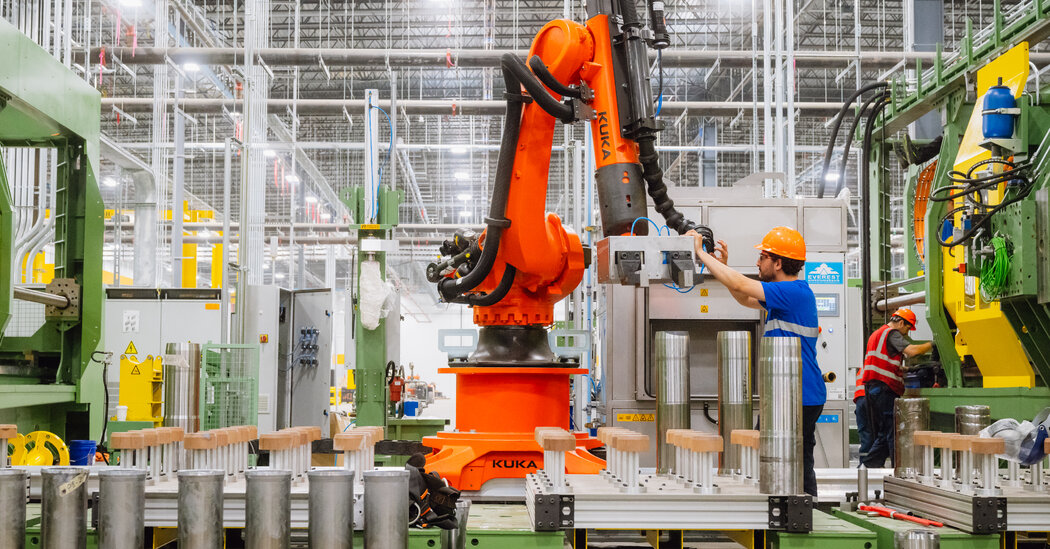- cross-posted to:
- ukrainianconflict@lemmit.online
- cross-posted to:
- ukrainianconflict@lemmit.online
In a warehouse off Lyndon B. Johnson Freeway in an industrial area outside Dallas, the future of American military ammunition production is coming online.
Here, in the Pentagon’s first new major arms plant built since Russia invaded Ukraine, Turkish workers in orange hard hats are busy unpacking wood crates stenciled with the name Repkon, a defense company based in Istanbul, and assembling computer-controlled robots and lathes.
The factory will soon turn out about 30,000 steel shells every month for the 155-millimeter howitzers that have become crucial to Kyiv’s war effort.
. . .
To keep Ukraine’s artillery crews supplied, the Pentagon set a production target last year of 100,000 shells per month by the end of 2025. Factories in Scranton and Wilkes-Barre, Pa., together make about 36,000 shells per month. The new General Dynamics facility in Mesquite, Texas, will make 30,000 each month once it reaches its full capacity.



This is the best summary I could come up with:
Here, in the Pentagon’s first new major arms plant built since Russia invaded Ukraine, Turkish workers in orange hard hats are busy unpacking wood crates stenciled with the name Repkon, a defense company based in Istanbul, and assembling computer-controlled robots and lathes.
“Despite all our starts and stops with the government, the continuing resolutions and getting the last supplemental, the industrial base responds when you fund it and it’s done right,” William A. LaPlante, the Pentagon’s top acquisition official, said in an interview with his Army counterpart, Douglas R. Bush.
Half of the on-site American work force came from another General Dynamics plant about 10 miles north in Garland, where the company forges steel casings for aerial bombs.
The shorter turnaround comes from the use of something called flow forming — a machine inside an enclosure roughly the size of a city bus rotates a 130-pound steel cup at high speed while simultaneously squeezing it until it becomes a long gleaming cylinder.
Each robot’s work area is fenced in, and its openings are flanked by an “air gate” — a strip of sensors that allow Roomba-like carts to enter but shut machines down if they detect a human.
The United States has transferred sensitive manufacturing plans for more than 1,000 American weapons to Kyiv, and translated an equal number of technical manuals from English to Ukrainian, the two officials said.
The original article contains 1,117 words, the summary contains 230 words. Saved 79%. I’m a bot and I’m open source!